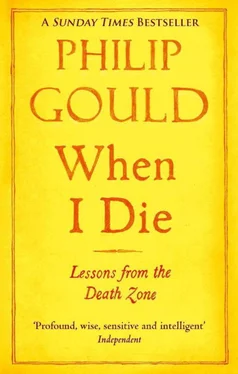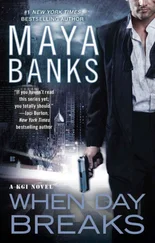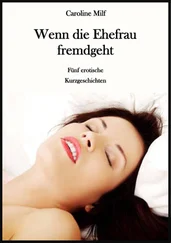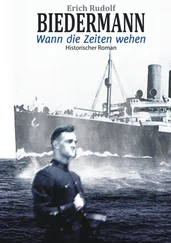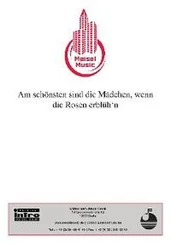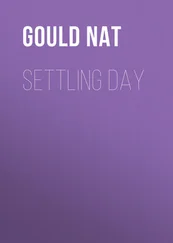The days may have been interesting but the nights were challenging. There was no protection at all, no comfort zone of sleeping pills or tranquillisers, no alcohol, no talking to friends or partners.
At night you are completely exposed, there is no hiding place. I had three drains, a feeding tube, a tube up my nose, an oxygen mask around my face, and much more besides. My whole body was aching and I could barely move. As night arrived I was placed semi-upright, and just sat there, trapped in the same fixed position. Hour after hour passed as I lay there, dozing at best for an hour or so, until at last dawn arrived, bringing with it the 5.30 round of tests.
The first night was the worst – I do not think I slept even for a moment, my heart beating rapidly and panic always just below the surface. I was fearful that I would not have the courage or capacity to get through.
That night and the one that followed were also made harder by the constant hallucinations. Even without morphine, my mind became difficult to control. Shutting my eyes would produce strange and inexplicable patterns floating inside my head. These moved in a constant swirling flux, making me feel more secure with my eyes open than shut. At first these patterns were black, then gradually they changed to white and then to colour, but still they were disturbing, nothing was ever solid.
After my epidural failed and I began taking morphine it got worse. I became trapped in living nightmares, unable to speak, move or raise an alarm. My bed seemed never to stay in the same place but would move around, creating new perspectives, new angles, new dimensions.
Throughout my life I have always trusted my mind never to let me down, but here I lost control of it, overwhelmed by the drugs and the tiredness. After a while I refused to take morphine, preferring physical pain to mental distress.
After two days in intensive care I returned to Ward 36, and was given a bed in the critical care unit. It was like coming home. The nurses all knew me by name and it felt so safe. I was soon institutionalised, settling into a standard routine.
I was woken by a nurse at half-past five or so and given tests, and then moved to a chair. For the first few days I was washed, and then sat there bereft of energy until Louise and the other physiotherapists arrived.
Before long I could walk the corridors of the hospital just as I had done in New York. But here, unlike New York, people smiled and the mood was jocular, the patients bracing themselves to be cheerful through the pain. It was very British.
After the walk I would sit on my bed reading about a page an hour and wait for a visitor, invariably Gail in those early days. At first we laughed a lot, and it really did feel good to be alive, but after a while I was a less attractive patient. Gail was a saint for putting up with me.
In the evenings I read and watched television, staying up late, delaying the night for as long as I possibly could. The days were slow but they were passing. Alastair Campbell came up, bringing with him Brendan Foster, the athlete and BBC commentator. Brendan exemplifies the North-East: big-hearted, generous in spirit, protective and proud of his region.
One of the purposes of the visit was for Alastair to meet Mike Griffin, always a risk given Mike’s wariness not just of New Labour but also of spin. In the end it worked. Initially, they eyed each other with a kind of territorial suspicion, but soon they became involved in a two-person Question of Sport , trading increasingly inconsequential and obscure facts about irrelevant sporting events. After about half an hour honour was satisfied and they became friends. Grace and Brendan looked on, bemused.
All the staff were outstanding. Mike would visit at least twice a day, at seven in the morning and then later at perhaps seven in the evening, his presence calming everyone. He had a wonderful touch with patients, treating each equally and with genuine respect, and he would always be there at weekends.
His patients gained, but I am sure his family suffered. Mike was not the kind of person who understood the term work–life balance. He was driven: to save lives, to make his unit the best in the world, to do everything he possibly could for his patients. He could be stubborn and was not easily open to compromise. But that was at the core of his strength.
If you started an argument with Mike it would take a very long time to finish, and you never quite felt that you had won. We spent hours in the evenings discussing politics and life.
The nurses were exemplary, never once failing to be positive or professional. At first they were a blur of uniforms and Geordie accents but gradually they emerged as individuals, with strong and sometimes angular personalities. They may initially have been suspicious of me, but gradually relationships formed – during a twelve-hour shift you get to know somebody and they get to know you. They would always start their shift full of energy and always leave tired. You could see the strain and the responsibility taking hold as the time went on. Twelve hours on your feet is a long time.
They were impeccable; it is impossible to imagine receiving better care. This was a team, a unit, in every sense of the word, working together almost intuitively, led ultimately by Mike but with everyone willing to step up and take responsibility when it mattered. It was impressive.
After a while Georgia replaced Gail. Georgia loved Newcastle, the hospital and Mike, seeing them as the embodiment of her values, something to believe in. It was completely her kind of place.
The week ground on with nothing getting much better; although not impossible, it was a slog. Like everybody else I was getting through. But the surgery and its aftermath had brought me closer to pain and death. I felt that when the crucial moment had come my faith could not get me through. I felt deserted by it, and that I had deserted it in turn. A priest came by, sent by my local church, ironically at a time when I was suffering pretty intense discomfort. We talked about pain, faith and doubt and I could see my faith settling into a new place, more sceptical and doubting, more aligned to my personality.
After ten days I moved into a room on my own, and then I collapsed with tiredness. Alistair Gascoigne, the man in charge of both the intensive care and the infectious diseases units, happened to spot me in the corridor and thought at once I was not well.
Alistair is another of those NHS giants. Brutally funny, he was brilliant at getting seriously ill patients to lift their moods. He was more subversive than Mike, more acerbic but also more private. Like Mike he started at some ungodly hour, working till late and most weekends. He entered rooms quietly, almost unnoticed, and had a sixth sense for the condition of his patients.
He immediately suspected I had an infection and, on a Saturday, personally pushed me in a wheelchair to the radiology department for an X-ray, hovering there all day. By mid-afternoon he had seen enough and said we would have to put in a drain.
This meant using radiology to plot a course from my back to my lungs, and then shoving in a tube that could drain off infected fluid. It sounded unpleasant but was actually not too bad, and luckily Grace was there to hold my hand. Eventually the tube was in and liquid flooded out, about two litres of it. This in just a day or so. Infections flare up in hours. Within days I would have been in trouble. In the event, the infection was killed off by a massive dose of antibiotics that was to last for four weeks.
Alistair’s intervention strikes me as amazing; he showed almost mystical powers in diagnosing me. He would visit every day for the rest of my stay to check I was all right, and we talked about our daughters, living in Newcastle, and the long walks he took on the Northumbrian beaches with his dog. He was reflective and modest, his low-key demeanour a stark contrast to his enormous importance to the hospital.
Читать дальше
